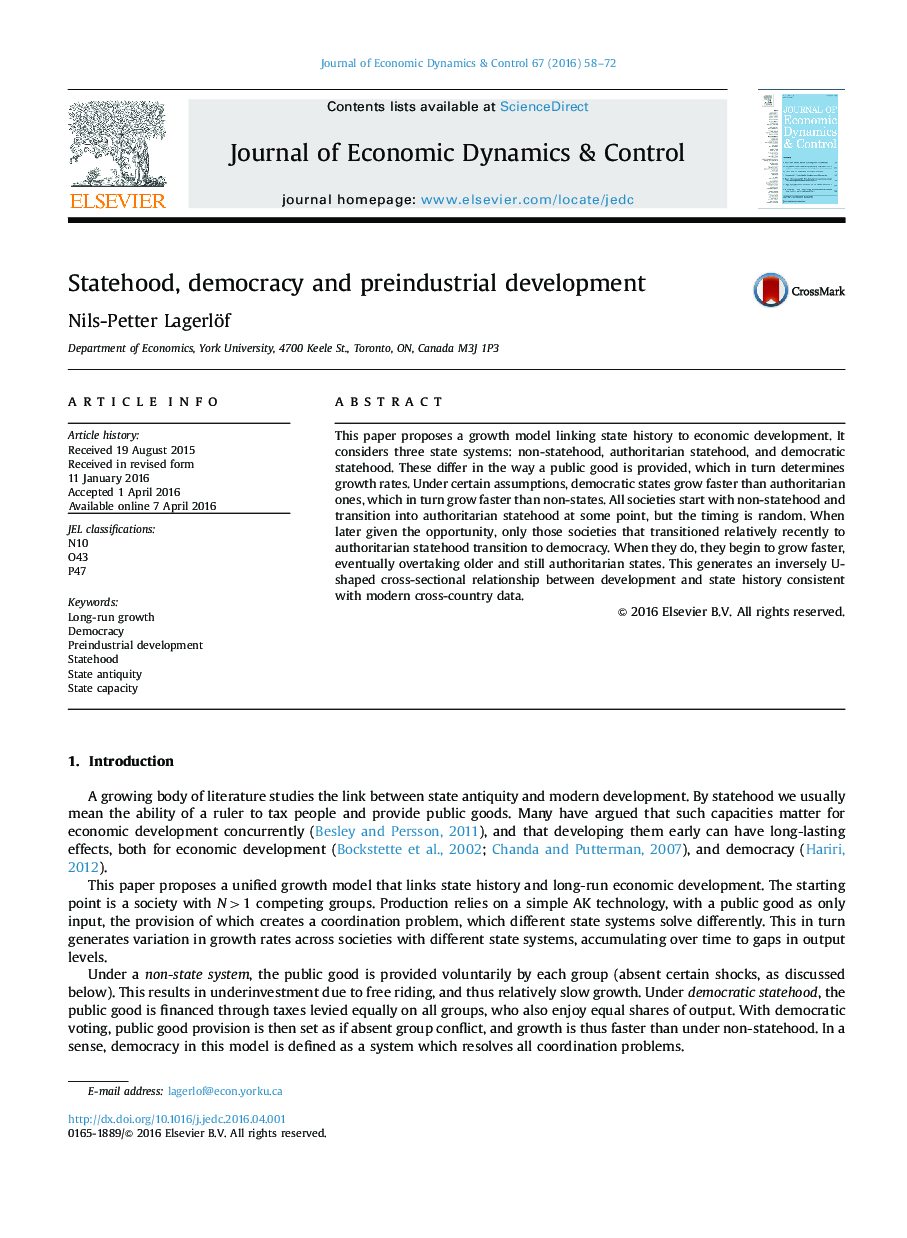| Article ID | Journal | Published Year | Pages | File Type |
|---|---|---|---|---|
| 5098173 | Journal of Economic Dynamics and Control | 2016 | 15 Pages |
Abstract
This paper proposes a growth model linking state history to economic development. It considers three state systems: non-statehood, authoritarian statehood, and democratic statehood. These differ in the way a public good is provided, which in turn determines growth rates. Under certain assumptions, democratic states grow faster than authoritarian ones, which in turn grow faster than non-states. All societies start with non-statehood and transition into authoritarian statehood at some point, but the timing is random. When later given the opportunity, only those societies that transitioned relatively recently to authoritarian statehood transition to democracy. When they do, they begin to grow faster, eventually overtaking older and still authoritarian states. This generates an inversely U-shaped cross-sectional relationship between development and state history consistent with modern cross-country data.
Related Topics
Physical Sciences and Engineering
Mathematics
Control and Optimization
Authors
Nils-Petter Lagerlöf,
